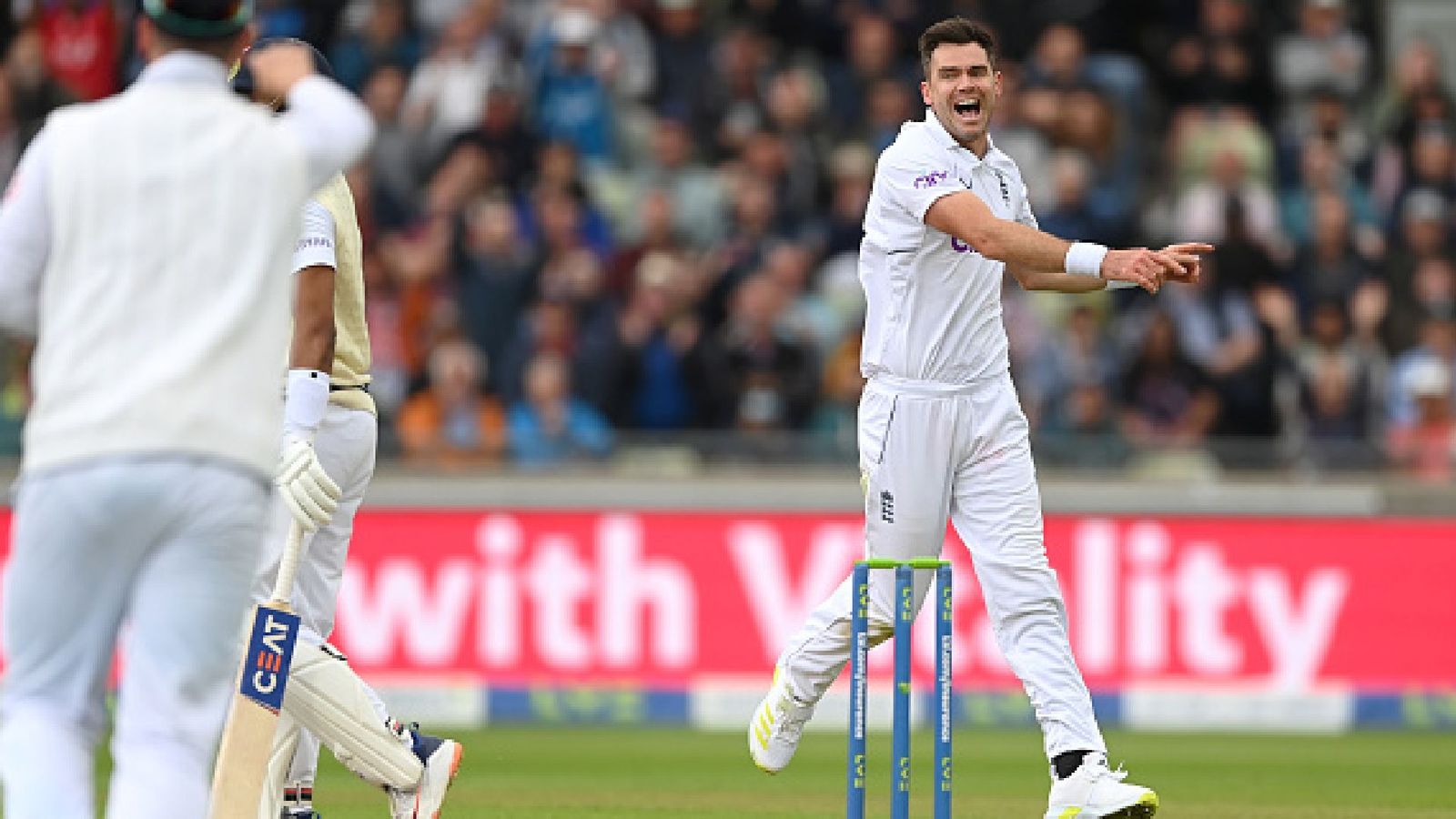England's premier fast bowler James Anderson is gearing up to feature in his first Test match after the age of 40. The right-arm paceman will achieve the feat when England walks out to square off against South Africa at Lord’s on August 17 (Wednesday) in the first of the three-match Test series. Anderson, who is the second-most capped player in Test cricket history, will participate in his 173rd game for the Three Lions in red-ball cricket. Only former India captain and legendary batter Sachin Tendulkar (200) has played more Test matches than Anderson.
Considering Anderson's craft of fast bowling, the Englishman's longevity is remarkable and unheard of. But the savvy veteran still looks in no mood to hang up his boots.
"It is just a number next to my name, it is not how I feel. I don’t feel old or that I’m slowing down. I don’t have any personal goals, I just want to keep enjoying my cricket," Anderson said on Monday.
England, who are on a four-game winning streak in Test cricket, have played a fearless brand of cricket since the time Brendon McCullum was appointed as the head coach. After chasing down a target of 275 runs or more on four successive matches, the English batters hogged all the limelight for their stunning display of stroke-making.
While talking about England's new approach to Test cricket, Anderson shed light on what changed for the English bowlers after McCullum's appointment.
"I felt really invigorated by the way we were asked to bowl as a bowling group. It was a change of mindset. I loved the aggressive nature of it and I’m looking forward to being a part of it," the Englishman reflected.
Only a handful of fast bowlers in the sport's history have performed at an elite level after the age of 40. Talking about contemporary cricket, no fast bowler has played a Test match after turning 40 and Anderson sees only his partner in crime Stuart Broad to achieve the feat.
"Maybe Broady (Stuart Broad). But definitely not after that, because no one will be stupid enough. Everything that has gone on in the world with franchise cricket, the Hundred, the short forms of the game, I can’t see anyone wanting to play Test cricket for this long," he added.
Talking about his longevity, the Englishman reflected on his decision to quit white-ball cricket and prioritise Test cricket.
"I think Broady will say the same: that we were fortunate our white-ball careers pretty much ended after that World Cup and we could focus on red-ball cricket. That worked out great for us. In the future, I can see it definitely being the other way round – with people picking and choosing their formats, tours, whatever it might be," he observed.


